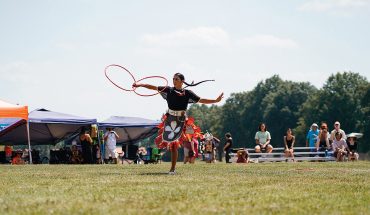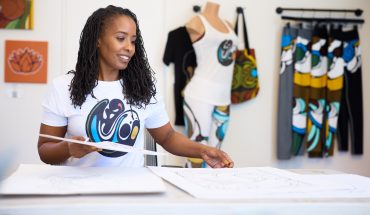by Cat Warren
Solo is a cadaver dog who recently retired. For eight years, he and I occasionally worked with local law enforcement by helping to search for the missing and those presumed dead. A handsome red-and-black shepherd with a perpetual grin, Solo taught me how to be a search dog handler. For Solo, human death is just a game. All he has to do to win the game is find the scent, which travels on air currents, get as close as he can to it, tell me about it, and then get his reward: playing tug-of-war with a rope toy. Nothing makes him happier.
I shed plenty of tears during Solo’s early training. He could be a jerk when he was younger: dog-aggressive, happy to ignore a command if more fun lay elsewhere. Those early training struggles seem inconsequential. I can barely remember a time when Solo hadn’t used his nose, his intelligence, his inherent drive — and his bond with me —on a search.
The same passage of time that created a soft miasma around my memories has been harder on Solo’s body. Now 10, my canine sidekick is receding. His coat is thinner and softer. When I rub his head, I can feel his big skull right beneath his fur and skin.
Coda is a cadaver dog in training. Also a German shepherd, she will be 2 in early September. She is raven black to Solo’s lightness, sleek muscle to his aging bone. Coda seems to gain flow from Solo’s ebb. She can leap on rubble and balance like a large cat. She runs like mercury through the woods and fields.
And I worry and wonder whether she can ever become what Solo was. As a search dog. As a companion.
I shouldn’t be suffering from second-dog syndrome. After all, Coda is my fourth German shepherd. But I am a relative beginner in the world of working dogs. Solo was my first. My ambitions when my husband and I brought Coda home as a pup from West Virginia seemed plausible: I wanted her to be a cadaver dog, too, but at an elevated level. Training her should be a snap. After all, I was that much more experienced as a handler. It hasn’t worked out that way.
Mike Baker, who has trained law enforcement canines and their handlers for decades, and who was even able to train me, keeps reminding me what it took to get Solo to the point where we worked on autopilot, moving as one. It takes time, he said. She’s not yet sure of the game. She’ll put it all together. I didn’t bother correcting Mike.
Although I’m not young, I’m impatient. Solo had always been perfect. Coda would never be.
Then came a day last winter when Mike decided to push my and Coda’s training. He forded a swollen creek to hide some training material—a jar of dirt harvested from underneath a suicide victim that subtly but stubbornly held onto the scent. He didn’t tell me where it was. That was Coda’s job.
“Watch your dog.” Mike gave me his quiet standard warning as Coda and I came around the wooded corner toward the creek. Coda ran back and forth along the bank, throwing her head in the air, trying to get into the water. She had caught the subtle scent of the training material. It was so clear. I am in awe of her nose. But she didn’t want to cross the creek. Every dog has at least one issue; otherwise-brave Coda wasn’t in love with fast, deep water. I’m not that fond of deep creeks, either, but I heeded Coda’s cry. I forded the creek and did what every working dog handler should do to build independence. I walked away. Into the woods, away from the creek bank, away from Coda. I heard yelps of displeasure. I heard a splash.
She did not come running to me with love and affection. I didn’t want her to. Instead, she pulled herself out of the creek and immediately fish-hooked back. She crawled down close to the swift water and the boulders. She put her nose between two dark boulders that hid the training material. Her umber eyes glowed with pleasure. I was filled with pride. Coda had found what we were looking for.
Cat Warren is a professor of women’s studies and science journalism at N.C. State. She is author of What the Dog Knows: The Science and Wonder of Working Dogs, a longlist nominee for the PEN/E.O. Wilson Literary Science Writing Award this year. She adapted this piece from an article originally published in The Dodo, an online magazine about animals. For more information, go to catwarren.com.




